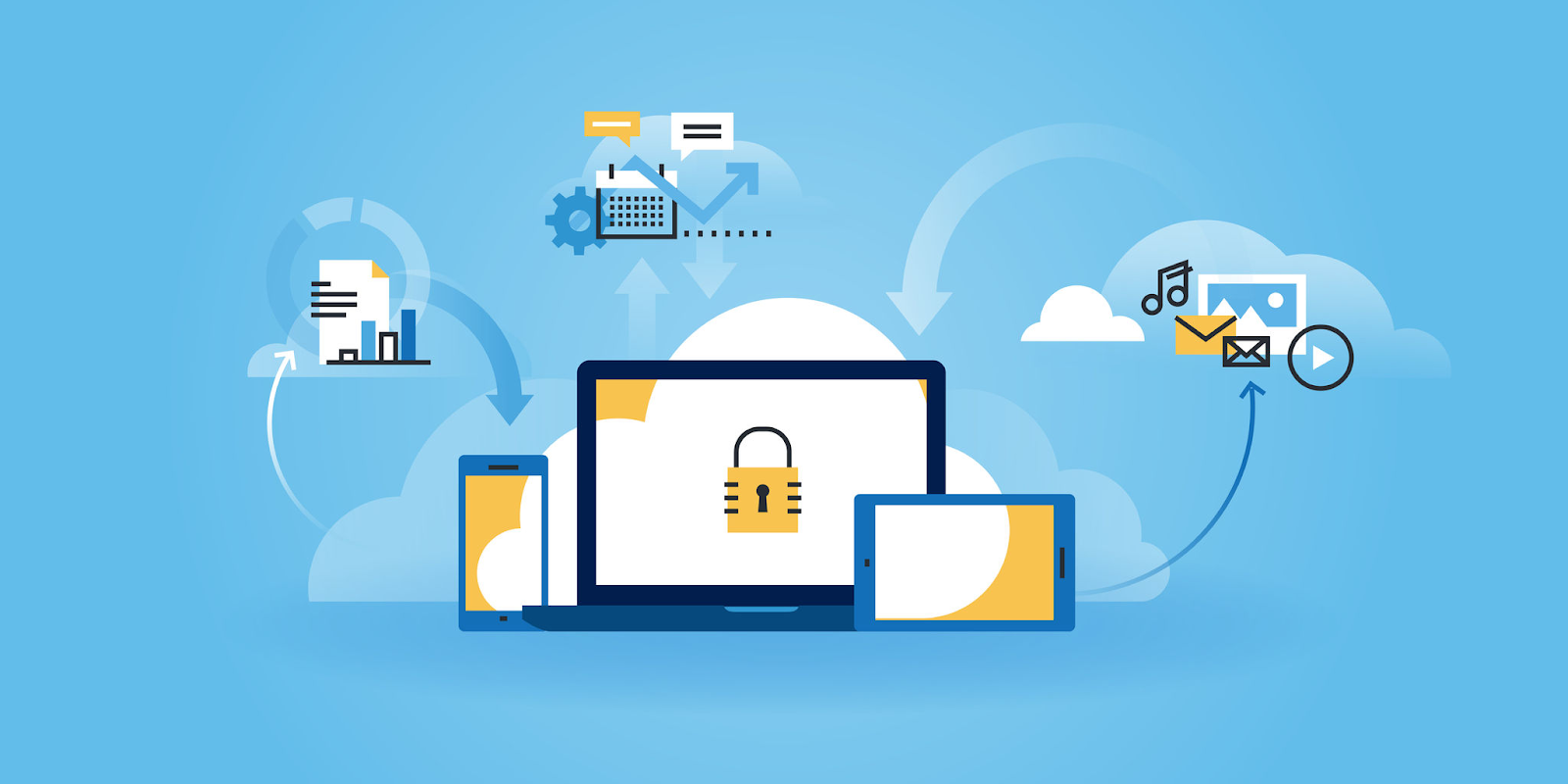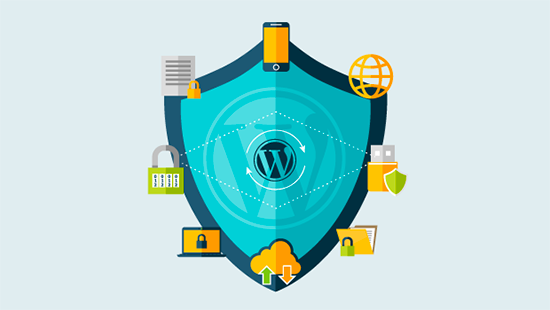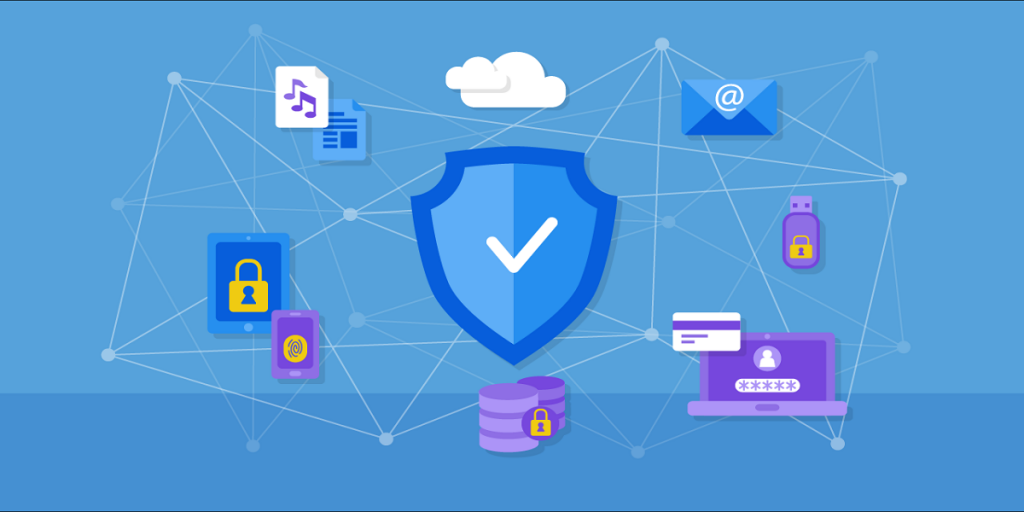Read this WordPress security guide to learn how to secure your WordPress site.
Over 90,000 brute force attacks are made on WordPress websites every single minute. That’s insane! Isn’t it?
That’s why it’s highly necessary to worry about the security of your WordPress.
Owners of tiny websites may believe that their websites are not worth hacking. In fact, because small websites don’t prioritize security, it is all the more simple for hackers to compromise them.
Whether it is a tiny or large website, all WordPress websites need to adopt the necessary security precautions.
If you’re using WordPress to develop your website, it’s highly essential to take the necessary steps to prevent any severe consequences in the future.
Thankfully, there are various web-protection measures you may employ to safeguard your site from hackers and automated scripts. We’ll go over the process you need to follow to guarantee your website is safe in this post.
Table of Contents
Why Is It Necessary To Secure A Website?
WordPress is one of the most popular Content Management Systems across the globe. Every day, 75 million WordPress websites are being generated. The type of popularity that comes with success also comes with a price. When you build a website, if you use a professional WordPress agency, then in the future, it will save you with codes and errors.
This popularity makes it more enticing to hackers. Apple’s operating system is a larger target than Windows. As a result, Chrome is a larger attack target than Firefox. Popularity gets people’s attention, which may be both positive and negative.
Small website owners believe their websites are impervious and are unaware of any essential safety precautions, making them prime targets.
Hackers sometimes use websites to do destructive actions when they hack websites. They could be launching even more sophisticated attacks on other websites, sending spam emails, storing pirated software, injecting spam links, selling illegal products, creating affiliate links with Japanese SEO, and in addition to this, they could be performing additional operations such as selling counterfeit products, uploading malware, spamming, and conducting other illicit activities.
Search engines can artificially construct misleading website warnings and can ban your site. According to recent reports, Google blocks over 50,000 websites each week for phishing and over 20,000 websites for harbouring malware.
Also, hosting companies may suspend your account if you break any of their rules. Your income collection will be hindered since your website will be unavailable for days. There may be irreversible damage to your business if you wait too long to repair your site.
Everybody can agree that securing your WordPress website is a good idea, rather than repairing it if it’s been hacked.
Before we teach you how to keep your WordPress site secure, we wanted to address an important topic that is on the minds of many of our users.
READ ALSO: Web Security Guide: Keeping Your Website Safe
WordPress And Security Issues
WordPress itself is rather secure. The WordPress core is safe thanks to an army of the greatest developers who are working diligently to maintain it that way. They make continuous efforts to advance their technology and address any errors or issues with the latest patches or updates.
WordPress has not been affected by a significant vulnerability for a number of years. Despite this, each minute, 90,000 websites on WordPress are hacked. Additionally, the two most important reasons for that are as follows.
WordPress is a very popular platform, to begin with. Many online sites use WordPress, which draws hackers from around the world.
Another important consideration is the existence of themes and plugins which are potentially unsafe and out of date. A growing number of WordPress compromises is reportedly linked to older plugins.
Especially if you’re currently running or planning to start an eCommerce store WordPress, it’s necessary first to learn how to keep it safe.
Even if it is a safe CMS platform, a lot of things can still go wrong with it. Therefore, it’s necessary to take precautions before something catastrophic happens.
So, without any further ado, let’s learn how to secure a WordPress site. Shall we begin?
How To Secure A WordPress Website
You can take plenty of precautions to protect your WordPress site; let’s take a look at some of them.
Install and use a WordPress security plugin
A security plugin or service performs scanning, cleaning, and protection activities. Not all plugins are effective. Many options are available, but they only cause clutter. Hackers can overcome such security plugins.
There are plenty of WordPress security plugins available out there; some of the popular ones are:
- Sucuri
- iThemes Security Pro
- WPScan
- Jetpack
- All In One WP Security & Firewall
No matter which security plugin you choose, all you need to know is that it’s essential to use at least one security plugin to prevent brute-force attacks.
READ ALSO: How To Secure And Protect A Website [We Asked 38 Experts]
Create website backup regularly
You have a safety net in the form of backups. If your website becomes damaged, you may use a backup to fix it.
Backup plugins are common. A large number of alternatives might make it simple to wind up with poor service. You’ll need to know how to pick a backup plugin to choose the correct backup service.
For a time-intensive and costly endeavor, evaluating backup plugins is required. Thankfully, we performed a comparative analysis of the most popular WordPress backup plugins.
Just like security plugins, WordPress offers backup plugins to make it easier for you to create a backup of your site, even if you forget by mistake.
Some of the best backup plugins of WordPress are:
- BlogVault
- UpdraftPlus
- JetPack Backups
- BackupBuddy
- BackWPUp
Choose quality web hosting services
Many web hosts provide both shared hosting and managed hosting.
Cheap shared hosting is popular. Thousands of people have started their own websites with a modest investment in them. In shared hosting, you share a server with unknown websites. Other websites on the same server may also be hacked. Popular shared hosting companies are ill-equipped to manage hazardous circumstances.
We highly recommend you choose a dedicated hosting server because this keeps WordPress websites more secure. See how web hosting affects website security.
Update your WordPress core, plugins and themes regularly
There are software vulnerabilities, no matter what, including the WordPress core.
When WordPress developers find a vulnerability, they fix it by updating their software. Vulnerabilities exist in the absence of website updates.
Developers openly publish vulnerability updates, which implies the fix is subsequently released. The security weakness has been discovered, and hackers know about it. Since not every website owner would upgrade their site quickly, they begin to hunt for websites operating on the vulnerable version. The time gap allows them to hack a huge number of websites.
80% of websites have been hacked since they aren’t being regularly maintained. You must keep your WordPress site up to date.
READ ALSO: 5 Best Web Hosting Providers That Offer The Best Security Options for WordPress Users
Keeping Your WordPress Site Safe: A Guide Through Security FAQs
WordPress is a fantastic platform for building websites, but security is an ongoing concern. Here are some frequently asked questions to empower you to secure your WordPress website:
How can I secure my WordPress website?
Here are some key steps to enhance your WordPress security:
- Strong Passwords & Updates: Use strong, unique passwords for your WordPress admin account and database. Keep WordPress core, themes, and plugins updated to address potential vulnerabilities.
- Limit Login Attempts: Implement a plugin to limit login attempts and prevent brute-force attacks.
- Two-Factor Authentication (2FA): Enable 2FA for an extra layer of login security. This requires a code from your phone in addition to your password.
- Security Plugins: Consider using a reputable WordPress security plugin. These can offer features like malware scanning, website firewalls, and security monitoring.
- Regular Backups: Maintain regular backups of your website. This allows you to restore your site in case of an attack or accidental data loss.
- User Management: Only grant users the minimum permissions they need to perform their roles. Avoid creating administrator accounts for everyone.
- Secure Hosting: Choose a web hosting provider with a good reputation for security. Look for features like firewalls and malware scanning.
Does WordPress have built-in security?
WordPress core offers some basic security features, but it’s not foolproof. Regular updates are crucial to address known vulnerabilities. For a more comprehensive security posture, additional measures like those mentioned above are recommended.
READ ALSO: Top 8 WordPress LMS Plugins to Use in 2026
Do I really need a security plugin for WordPress?
Security plugins aren’t mandatory, but they can significantly enhance your website’s security. They offer a variety of features that can be difficult to manage manually, such as automated malware scanning, website firewalls, and security monitoring.
Can I password protect a WordPress site?
Yes, you can password protect your entire WordPress site or individual pages. This can be useful for websites under development or with restricted content.
Conclusion
By following these steps and staying informed about security best practices, you can significantly reduce the risk of your WordPress website being compromised. Remember, security is an ongoing process, so vigilance is key.
You must take action to safeguard your WordPress site. The easiest approach to increase your site’s security is to utilize a managed WordPress hosting provider like Pagely.
No matter how you choose to deal with WordPress security, you should keep it in mind as a continuous endeavor. When you have completed the following security measures, you’ve kept yourself secure from the majority of frequent attacks.
Interesting Posts
About the Author:
Gina Lynch is a VPN expert and online privacy advocate who stands for the right to online freedom. She is highly knowledgeable in the field of cybersecurity, with years of experience in researching and writing about the topic. Gina is a strong advocate of digital privacy and strives to educate the public on the importance of keeping their data secure and private. She has become a trusted expert in the field and continues to share her knowledge and advice to help others protect their online identities.









